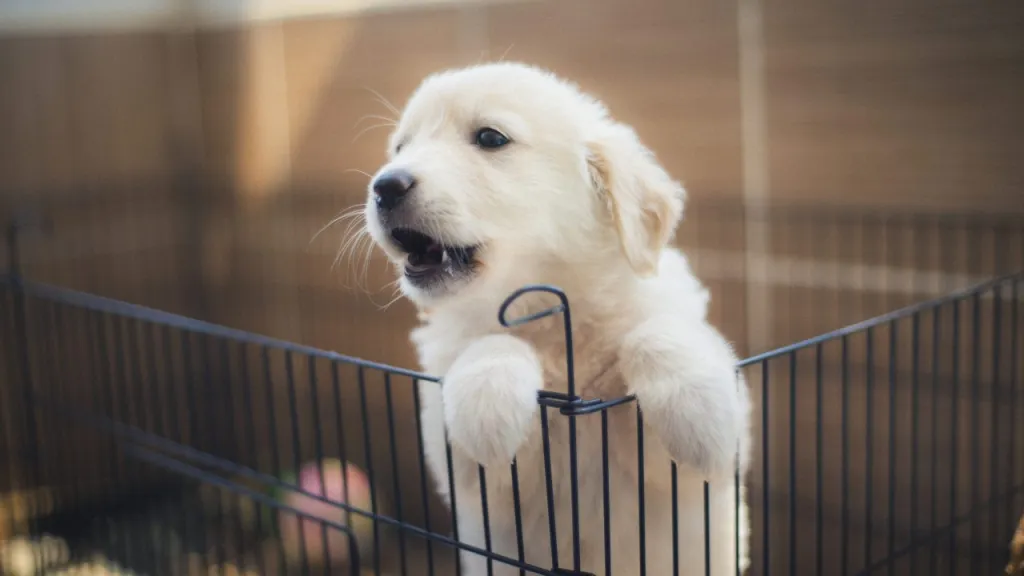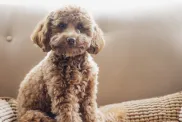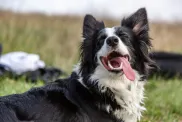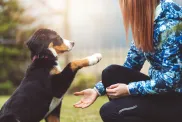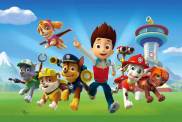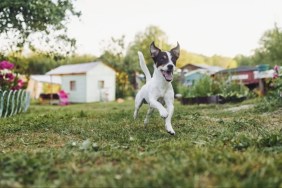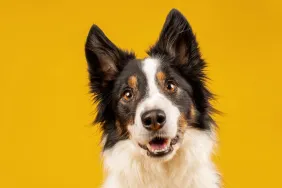It can be frustrating to deal with accidents and a new puppy. If you are looking for ways to housetrain your puppy, you are not alone. There are lots of ways to potty train your new puppy, and the good news is your puppy wants to learn! Before you let your pooch have full run of the house, make sure to teach them the house rules to avoid accidents.
Start with a crate or gated-off area
For many, the thought of restricting a brand-new puppy to a certain area of the house or a crate may feel awful. Hearing your pup cry out can put your willpower to the test, but keeping your dog in a small enough area will quickly teach them not to relieve themselves inside.
Crate training is effective for a multitude of reasons. Your puppy will not want to relieve themselves in a small space they can’t leave. Crate training also helps keep your puppy safe. For example, if you are not home and let your puppy get free reign of the house, they could get into something toxic or get stuck somewhere. Even if you’re home with your puppy throughout the day, it’s smart to keep them in either a doggy playpen or a gated area unless you can keep all of your attention on them.
Never use the crate for punishment. You want your pup to consider that space as their own, personal territory. It should be a safe place for them to retreat to when they feel overwhelmed or just want some peace and quiet. Over time, you may even find them taking a nap there by choice!
Know when your puppy needs to go potty
When you first start training your puppy, you may want to play with them as soon as you let them out. Before introducing your puppy to their new favorite toy, take them outside and have them relieve themselves. In general, puppies need to go potty after waking up, eating and drinking, and playing. Puppies can also only hold it for about 30 – 60 minutes for each month of age. For example, if your puppy is three months old, they should go out every 1-3 hours.
Use a command word like “Go potty,” to signal to your puppy that it’s time to relieve themselves. Even if you have a gated backyard, you should start with your puppy on a leash so they know it is time to eliminate and not to play.
Give your puppy lots of rewards
Keep some small treats on you whenever you let your puppy outside to go to the bathroom. Once they successfully eliminate, be sure to heavily praise and reward them. Your puppy will quickly associate the positive reinforcement they get with relieving themselves outside, and they’ll quickly get the idea that they’re supposed to go potty there.
Avoid punishing your puppy if you find an accident
If you leave your puppy in their crate and you return home to a soiled situation, resist the urge to yell at them. Puppies don’t associate a previous accident with the act of punishment. Yelling at your puppy could lead to the opposite effect of housetraining, causing them to hide their accidents elsewhere.
If you do catch your puppy in the act, quickly stop them and move them to the appropriate place to go. And, have an enzymatic cleaner on hand to break down any urine or stool particles. This can discourage your puppy from using that spot again.
Consider potty training alternatives
If you live in a high-rise or your puppy isn’t fully vaccinated, it may be difficult to let your puppy out every couple of hours. You may want to set up an indoor space that you can designate for your puppy to use such as a doggy litter box or pee pad. Once it’s safe to take your puppy outside, you can gradually move the puppy pad toward the door, or outside, to help guide them where to go.
If you’re considering training your puppy to use a doggy litter box or indoor turf, you can follow the same potty training techniques as you would outside. Just be sure to bring them to the spot every time they need to go.
Stick to a daily routine
A routine can help your puppy learn the rules and avoid confusion. It’s also a great way to set your pup up for success. If you know they need to go potty after waking up or eating, you can use that to your advantage to time their outings. By taking your puppy out at the same times throughout the day, they will learn when they can expect to go outside and relieve themselves. As your pup ages and can hold it longer, you can reduce the number of outings in your routine.
With a little time and patience, these tips can help make puppy house training a breeze. Interested in learning about more ways you can help set your puppy up for success? Check out some top tricks to teach your puppy. Or, follow this guide on how to puppy-proof your home.
